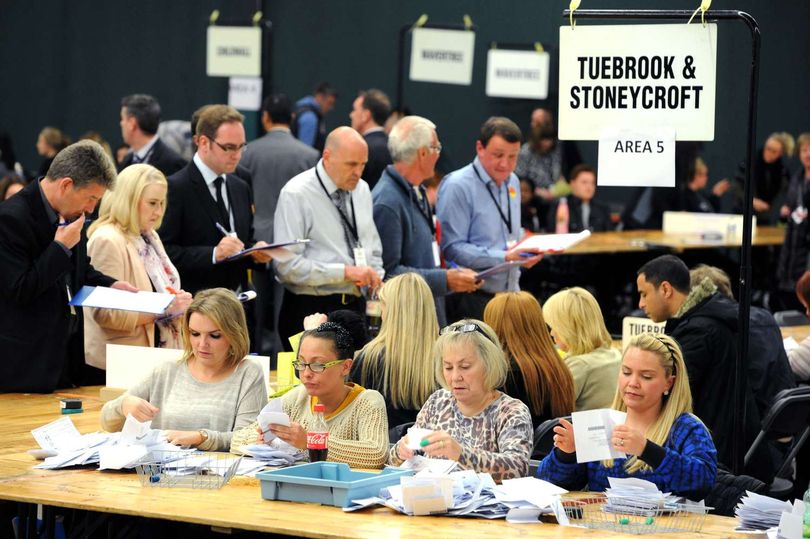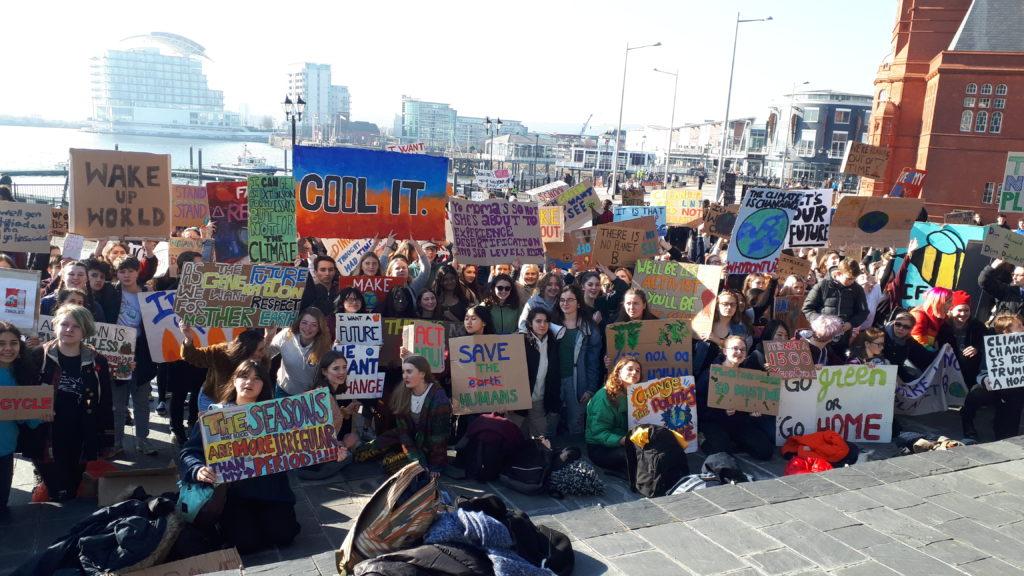Talking Points reflects on the 2021 local elections
Posted on 04 Jun 2021 Categories: Blog, Climate crisis, Coronavirus, Inequality, Local initiatives, New economic models, Community Wealth Building, Talking Points, Wellbeing
by Rethinking Poverty
The results of May’s 2021 local elections will have dismayed those who care about progressive causes, as showcased in Rethinking Poverty. But can we learn anything from them about what it will take for progressive policies to prevail, asks May’s Talking Points. We also come back to some perennial topics – poverty and inequality and what to do about them, Universal Basic Income, the future of work. Finally, we look at the role of community energy projects and small farms in addressing the climate crisis, and the need for a new politics and culture if we are to succeed.
What can we learn from the 2021 local elections?
The results of the local elections in early May 2021 were mostly disappointing for the Labour Party. What can we learn from the places where they did well? Labour’s crisis comes from the huge gap between politics and people, writes the Guardian’s John Harris. Visiting Birmingham, he writes, ‘the most hopeful thing I found was not in a manifesto, but at the heart of a trailblazing local institution called the Witton Lodge Community Association’, which is about to convert a huge disused swimming pool into an incubator for small businesses, along with an event space, creche and café – ‘a vision of one small part of a better society’. In such places as Wigan, Preston and Salford, he goes on, ‘creative, rooted, determinedly localist’ councils also bucked the trend.

These successes in the 2021 local elections show the importance of localism and positive vision, agrees Helen Pidd. ‘Look at where Labour did well – Wales, Greater Manchester, the Liverpool city region, Preston – and you can see that where the party led with conviction, promoting a positive vision for their local area, it was rewarded at the ballot box.’ In Salford, mayor Paul Dennett–attributed his increased vote share to a ‘message of hope and optimism’. ‘He said he had tried to influence Salford’s growth “to ensure it benefits the residents who live here”, bringing services back to the council and building social housing once more – “something many people told us was impossible”.’
The lesson from Preston is show communities you can deliver change, writes city council leader Matthew Brown. Preston’s success lies in a strategy the council has been pursuing for nearly a decade known as community wealth-building. ‘In 2011, when a major shopping centre development that would have brought £700m investment to the area failed to materialise, we decided to take matters into our own hands and pursue a model that would bring resilience to our local economy, ensure wealth remained within the area and give people a say over their economic destines.’ Depending on extractive growth, ‘where wealth is siphoned out of communities for the benefit of distant shareholders’, is no longer a feasible model, he goes on.
Governments have been promising to ‘level up’ the UK for 80 years, writes Neil McInroy of CLES, but ‘what has been devolved is not the power to address regional imbalances’. What we need, he says, is to ‘redistribute wealth according to firm, democratically transparent local needs assessments that steer resources to the poorest areas. We also need funding for universal public services and new fiscal powers for local areas.’
Finally, we have Larry Elliott pointing out that progressive politics nevertheless seems to be in pretty good health and ‘once unfashionable ideas have become part of the mainstream’. ‘Activist tax-and-spending policies by finance ministries are back in vogue … Furlough schemes are a form of basic income. Joe Biden has showered money on American citizens with no heed for the US budget deficit.’

Poverty and inequality
Government spending notwithstanding, poverty and inequality have only got worse. The Mirror exposes the ‘damning scale of UK child poverty’, with more than a third of children in the North East living in poverty. As MPs debated a petition signed by more than 1.1 million people calling for an end to child food poverty, Marcus Rashford had a simple message for MPs: ‘in life there’s the right thing to do and the wrong thing to do.’
Whatever Johnson’s ‘levelling up’ means, it isn’t about Britain’s shocking poverty levels, writes Polly Toynbee. ‘We live in a country where a third of children are poor – really poor – relative to the country’s ordinary living standards, but the government doesn’t think enough people truly care for it to matter politically.’
Meanwhile the number of billionaires in the UK reached a new record during the Covid crisis There are 171 billionaires in the UK, 24 more than a year ago, according to an annual ranking compiled by the Sunday Times.
What can be done?
Benefits
New research from the Fabian Society reveals a groundswell of support for increasing benefit payments. The research shows that the UK public ‘think the Covid boost to universal credit should be permanent’, with ‘consensus support for £10bn of extra payments on top of the £7bn cost of retaining the £20-a-week universal credit boost’. This would take welfare spending back to 2013 levels and reduce child poverty rates by a third.
Work
What about work, traditionally the way out of poverty? As a new IPPR report, No Longer Managing, shows, for many people jobs are trapping people in hardship instead of opening up a route out of poverty. The report argues for greater priority to be given to bringing down the high costs of housing, childcare and other essential goods as a proportion of household income, as well as reforms to genuinely ‘make work pay’.
Universal Basic Income
‘Furlough was a radical success. Now let’s talk about a universal basic income,’ argues the Guardian’s Zoe Williams. Furlough ‘embedded a principle of shared responsibility: if millions are unable to work due to an emergency, there is a collective duty to support them until normality is restored. A parallel principle was also established,’ she adds, ‘that the support isn’t “the least you can get away with”, but rather “the most you can afford”.’
As noted in a recent Basic Income Conversation webinar in relation to unconditional cash payments in the US, furlough has opened up the discussion of UBI. ‘Furlough and the pandemic generally had an almost immediate impact on perceptions of the policy,’ says Williams. ‘84% of the public, as well as 110 MPs and peers across seven parties, supported the idea of a “recovery basic income”, while worldwide there was a surge of interest in an “emergency basic income”. Spain became the first country in the world to roll out a form of basic income on a permanent basis, while Hong Kong, Japan and the US have since made significant one-off payments. Wales, meanwhile, has announced a UBI pilot scheme.’
The argument for UBI runs thus, she says: ‘the existing benefit system, devised in a single-breadwinner, job-for-life era, no longer meets the needs of a population increasingly dependent on zero-hours and short-term contracts. The flat amount would not be so great as to obviate work, only to forestall desperation.’
The future of work
The future of work remains a hot topic. NatWest Group is the latest major business to plan new remote working rules beyond the pandemic. It is preparing for a future where just 13 per cent of its 64,000 employees work from the office full-time. One in three of the bank’s staff will be able to live and work anywhere in the UK and have to attend their office in person only two days a month. Earlier in May, accountancy firm EY told its 17,000 employees they would be expected to work from home for at least two days a week, even after coronavirus restrictions are lifted. One of the more bizarre consequences of this trend is – shades of David Cameron? – ‘booming sales of high-end sheds’ to meet the demand for ‘shoffice’ space in UK gardens.
A four-day working week also remains on the agenda, with a new study claiming it would slash the UK’s carbon footprint. The study found that moving to a four-day week by 2025 would shrink the UK’s emissions by 127 million tonnes, a reduction of more than 20 per cent, equivalent to taking the country’s entire private car fleet off the road.

The importance of being small
Governments are overlooking a key piece in the climate puzzle: community energy projects, writes Molly Walsh in Climate Change News. Every country in Europe has inspiring success stories – solar panels on schools, large-scale cooperatives, projects to tackle energy poverty and many more. But for every project that succeeds, she says, ‘there are many more which fail. This is because a plethora of barriers still exist that slow down or block projects.’ Some of the most common barriers are ‘access to the grid, access to finance, and overwhelming permitting processes. There are simple policies that national governments can put in place to remove these barriers and allow community energy to flourish.’

Also on the ‘small’ theme, Prince Charles writes in the Guardian of the huge role small farms can play in our sustainable future. If they are to play this part, he says, Britain’s family farmers must have the tools and the confidence to meet ‘the rapid transition to regenerative farming systems that our planet demands’. As he sees it, the solution would be for them to come together in some sort of co-operative: ‘I believe there is strength in numbers … It is worth remembering that most of these farms are run by one or two people. Unlike the larger farms, they often don’t have the time or the resources to seek advice.’ In fact, he concludes, ‘there are small farms the world over that could come together in a global co-operative committed to producing food based on the principles set out in my Terra Carta, a charter for nature, people and planet.’
A shift in values needed
We cannot rely on technology to solve the climate crisis, says Peter Sutoris. ‘Even if the technologies on which we pin our hopes for the future deliver as expected and do not lead to much collateral damage – both of which are huge assumptions – they will not have fixed our mindsets. This is a crisis of culture and politics.’
Our civilisation is underpinned by extractivism, he argues, a belief that the Earth is ours to exploit, and the nonsensical idea of infinite growth within a finite territory. We can learn from indigenous groups who ‘came to understand the limits of what these environments could support … Pacific islanders would designate no-go areas of the ocean to avoid overfishing, while high-altitude farmers in the Andes would rely on terraces that reduced erosion to grow their crops.’
While some of our technological innovations can help us treat the symptoms of the environmental multi-crisis, he goes on, ‘addressing the causes means abandoning some of the assumptions on which our current society is built: infinite growth, the instrumentalisation of the natural environment and speciesism … Changing the collective mindset of a civilisation calls for a shift in values … It means political organising, generating demand for a politics that sees beyond the nation state, and beyond the lifespan of the currently living generations – Wales has already started,’ he says, ‘with its Wellbeing of Future Generations Act.’

Want to keep up-to-date with more articles like this? Sign up to our newsletter.
Posted on 04 Jun 2021 Categories: Blog, Climate crisis, Coronavirus, Inequality, Local initiatives, New economic models, Community Wealth Building, Talking Points, Wellbeing
